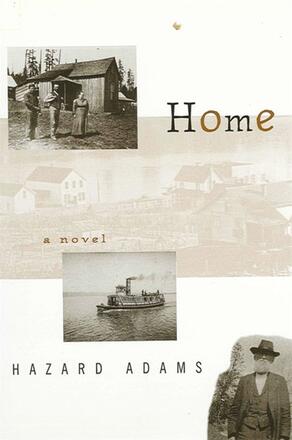
Home
A Novel
Alternative formats available from:
A history professor experiences disturbing parallels between the furor over hiring decisions and an alleged case of sexual harassment on his own campus, and the harassment of an anarchist commune on south Puget Sound in 1902.
Description
Fact meets fiction in Hazard Adams's latest novel. Using an actual turn-of-the-century anarchist commune on Washington's south Puget Sound as the backdrop, Adams tells the story of Edward Williams, a present-day history professor and former vice president at nearby State University. As he studies and imagines the lives of those who participated in the commune, which came under vicious attack after the assassination of President McKinley in 1901, Williams is drawn into disputes on his campus over the proposed appointment of a distinguished feminist professor of American studies and an alleged case of sexual harassment. Both comic and tragic events ensue.
Employing photographs taken at Home in 1902 and 2000 and parts of diaries kept by visitors to the commune, Adams dramatizes the parallels and contrasts between the events of 1902 and those of 1990–91 as they are experienced by a variety of characters in both periods.
With Home, Adams completes his fictive account of academic life in the latter half of the twentieth century, begun with The Horses of Instruction, set in the fifties, and continued with Many Pretty Toys, set in 1970–71.
Hazard Adams is Professor Emeritus of Comparative Literature at the University of Washington. His previous books include Many Pretty Toys, also published by SUNY Press; The Horses of Instruction; The Academic Tribes; and The Truth About Dragons: An Anti-Romance.
Reviews
"The parallel in Adams's latest novel—between latter-day discontents in an English department and a short-lived colony of good-natured anarchists who occupied the woods at the bottom of Puget Sound early in the twentieth century—is wise rather than clever, and shapely, not forced. While it steers fairly close, in theme, to what goes on in 'Opinion' pieces in The Chronicle of Higher Education or the kind of laborious academic satire that no one really reads, Home is better than that—it's a novel, not a satire." — Bruce Michelson, author of Literary Wit
Many Pretty Toys
"An intelligent account of intelligent people trapped within their own intelligence: Adams writes sharply and without favor about a period of history that is almost always considered in strictly partisan terms." — KIRKUS REVIEWS
"Adams's shrewd tale of Vietnam-era idealism on a college campus plays out with dignity and intelligence." — Publishers Week
"In our multimedia age, it's refreshing to be reminded how literature on its own, and without being written for TV, can compellingly define the watershed events of the century. The events at issue in Hazard Adams's brilliant fourth novel are the student anti-war and anti-establishment protests of the late 1960s and early '70s, which forever altered our world view of how those coming of age matriculate into society." — SEATTLE WEEKLY
The Horses of Instruction
"…witty and merciless, yet not a satire of folly only, for even the antagonists are seen and understood eventually in the light of a humane understanding, though they are not forgiven." — Los Angeles Ties
The Academic Tribes
"An enjoyable description (and vivisection!) of the various groups who people Academe.…Essential for anyone who extracts his livelihood from the forests primeval of Academe and who periodically suffers fits on the meaning of it all." — Choice